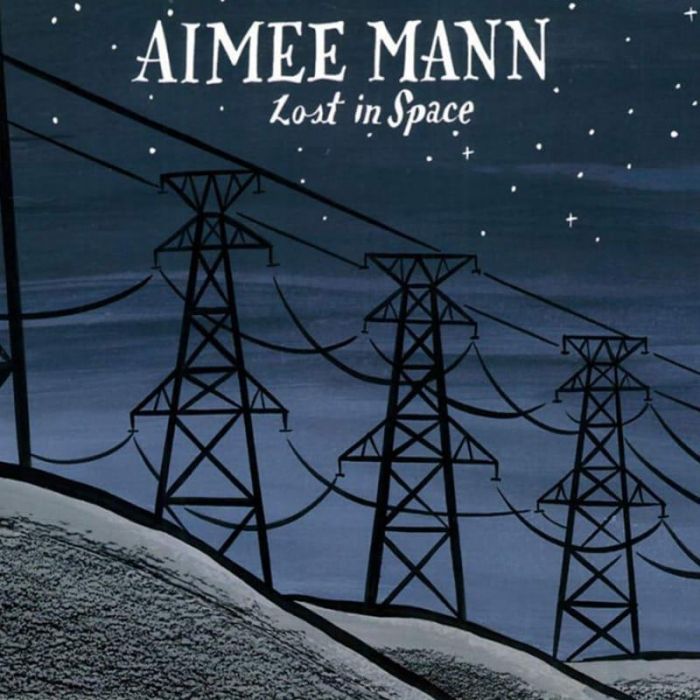Lost in Space by Aimee Mann (Review)

Upon an initial listen, Aimee Mann’s new album Lost in Space impresses one with it’s similarity to her other work. It contains the same themes upon which she’s waxed eloquently in the past: romantic turmoil, depression, helplessness, self-doubt, and hopelessness. The music hasn’t made any great leaps that I can fathom. It’s still graceful pop that lends itself to a mostly mellow listen. As you can see, I was pretty bored with the album as a whole. That is, until a listen two days ago.
I was sitting on the El, barely awake, listening to the same songs I’d been listening to for weeks. For some reason, this time I became acutely aware of the words and the music. Suddenly, I saw the genius of Mann’s technique. Yes, she’s found a concept, a niche, and she hasn’t traveled far from it on this album. Depending on what you like from a favorite artist, this failure to change should probably be held against her.
Having said that, I also have to say that Aimee Mann knows her corner of the angst-ridden music market well and she’s got a spectacular gift for concocting a dismal world in her music. On the El that day, her simple words hit me with a force that I didn’t expect, reminding me of people I know, of feelings I’ve had. I came to feel and understand that this album is truly, in Mann’s own lyrics, “[a]ll about drugs/It’s all about shame/One more failure to connect.”
Most of the lyrics on this album read like a letter to a wayward lover, one whom you’re leaving or who is leaving you. It hardly matters who is to blame. The central theme here is a failure to communicate (“Cool Hand Luke” anyone?). In “Pavlov’s Bell,” Mann sings “Tell me what I already know/That we can’t talk about it.” In “This Is How It Goes” she sadly admits, “So I try to hold on/While you try to let go/You won’t tell me it’s gone/But baby I’ll know.”
There is a desolation here that’s frightening. You stand in front of the person you’ve loved for some length of time and you realize you’ve descended from intimacy to utter isolation. You reach for the fantasy to try and keep you afloat but “Reality intrudes/With a message for you.” All of these phrases and words are simple, which is something I’ve had trouble with in listening to Mann in the past. Yet there is a universality in her lyrics to which people can relate. Mann has a definite gift in being able to capture a complex event, such as the last gasps of a relationship, in a couple of well-placed phrases.
Lost in Space is an extremely apt title for this album. Mann continually writes in the voice of someone who is cut off from a purpose or direction in life. In “Humpty Dumpty” she says, “I’m not the girl you once put your faith in/Just someone who looks like me.” On the title track, she warns, “I’m just pretending to care/Like I’m not even there/Gone, but I don’t know where.” Again, the theme of isolation remains strong throughout all of the songs. I commend Mann for being able to lyrically represent depression in such a simple and strangely beautiful way.
I don’t have much to say about this album musically. It is what it is. If you like Mann, you’ll like it. If you don’t, chances are you won’t really find anything of interest. Ultimately, this isn’t the kind of music I play all that often. For one thing, the content is fairly heavy. I just can’t sit around and listen to sad music everyday like I used to. Additionally, I’m not the biggest fan of Mann’s pop sensibilities. It ends up seeming bland and somewhat akin to elevator music in my mind. However, I would easily put this disc in for a mellow background, except for the fact that the subject matter seems to demand more than a polite listen.
This critique is not to say that Aimee Mann isn’t a gifted, extremely intelligent songwriter. She’s so good that I often forget to actually listen to the music. And therein lies the problem.
Written by Ruth Williams.